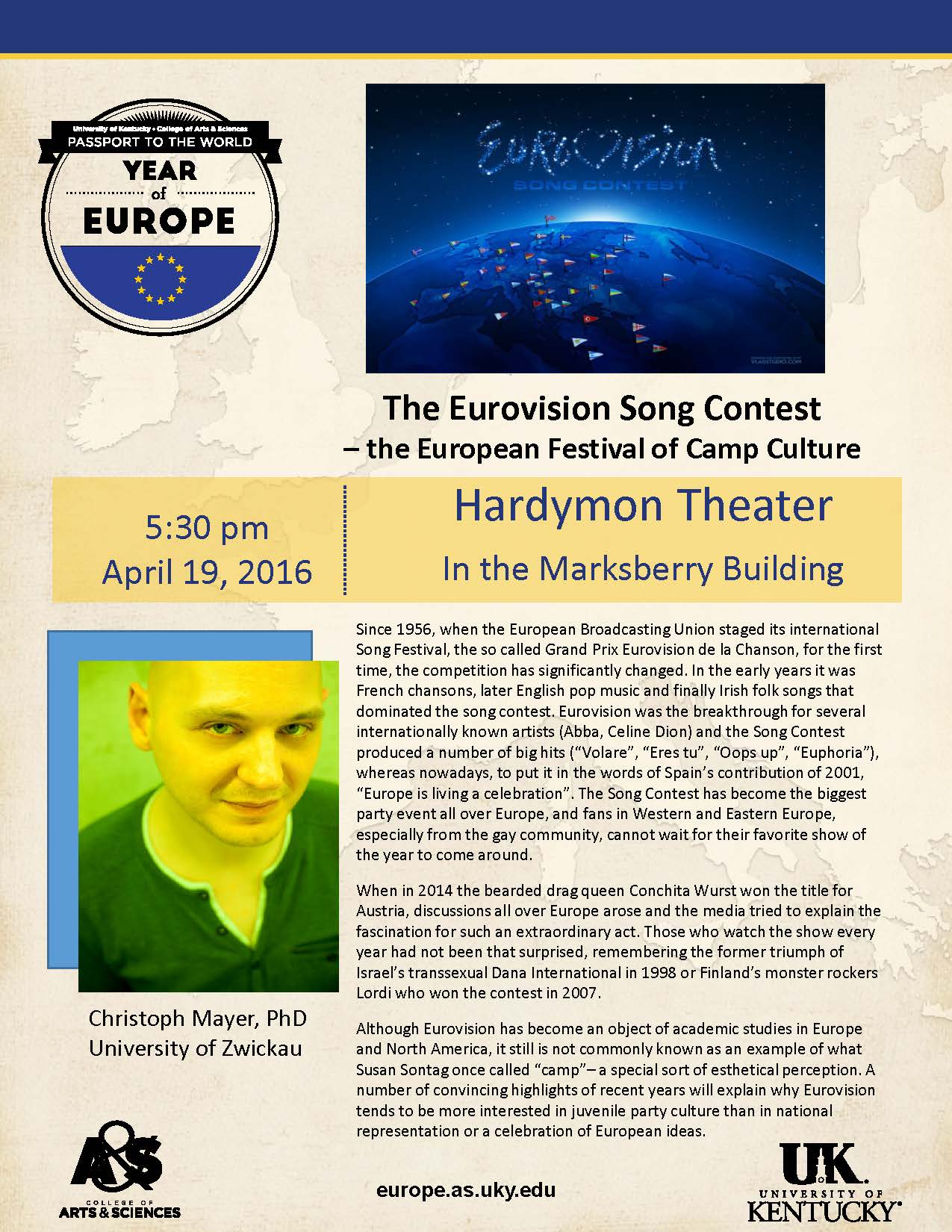Eurovision Song Contest: A European Festival of Camp Culture

Date:
Location:
Hardymon Theater in the Marksberry Buidling
Event Series:

For more information on the film series "Europe Through the Lens: a Festival of Contemporary European Films" visit http://libguides.uky.edu/eurofilm.
For more information on the film series "Europe Through the Lens: a Festival of Contemporary European Films" visit http://libguides.uky.edu/eurofilm.